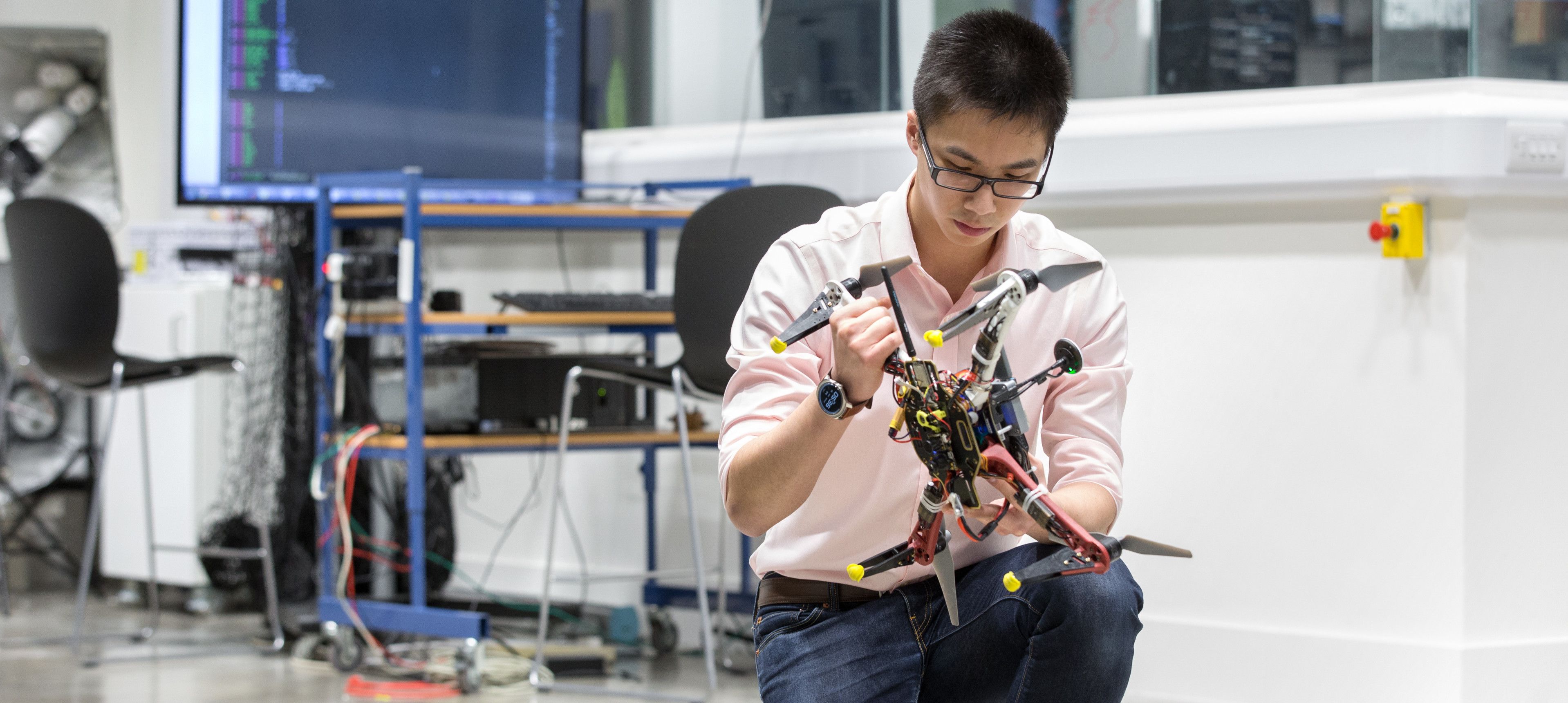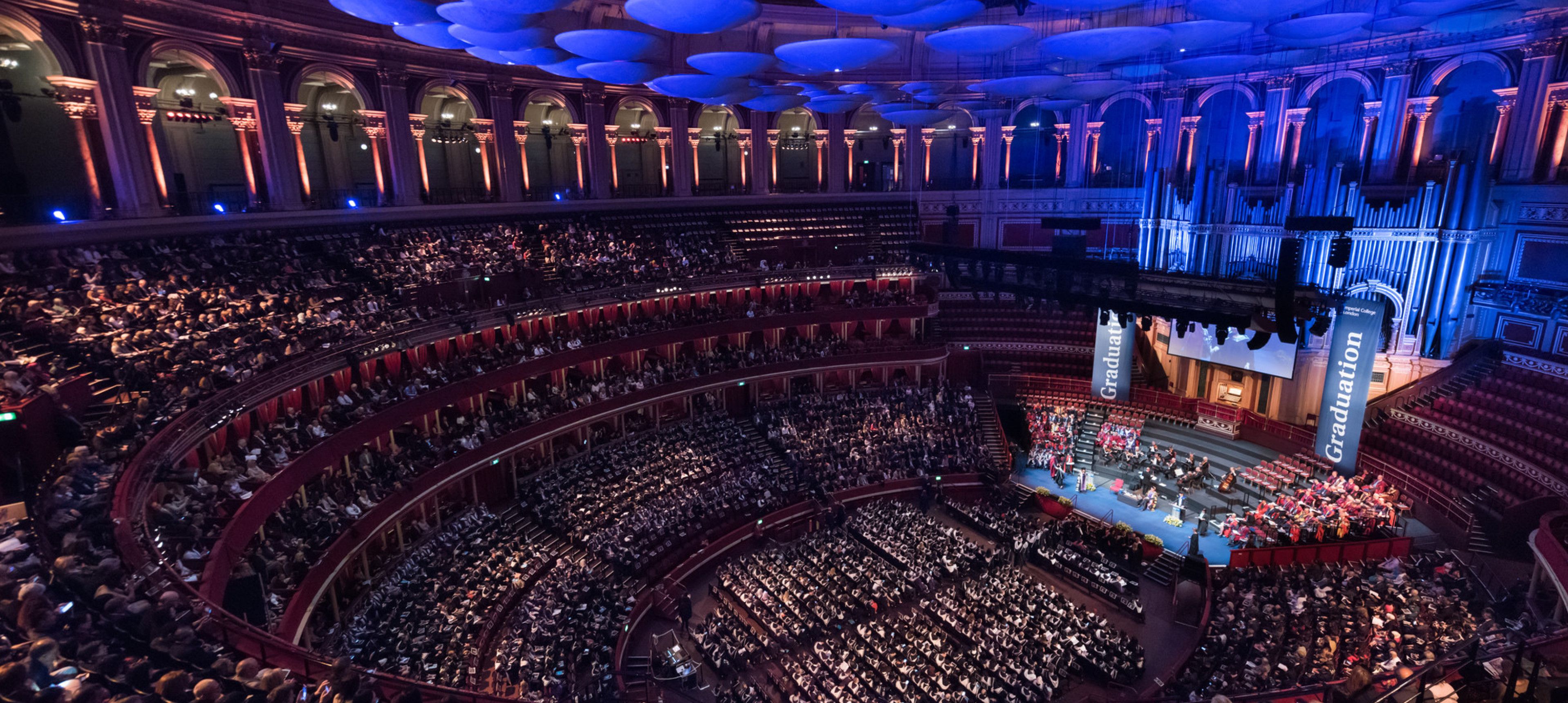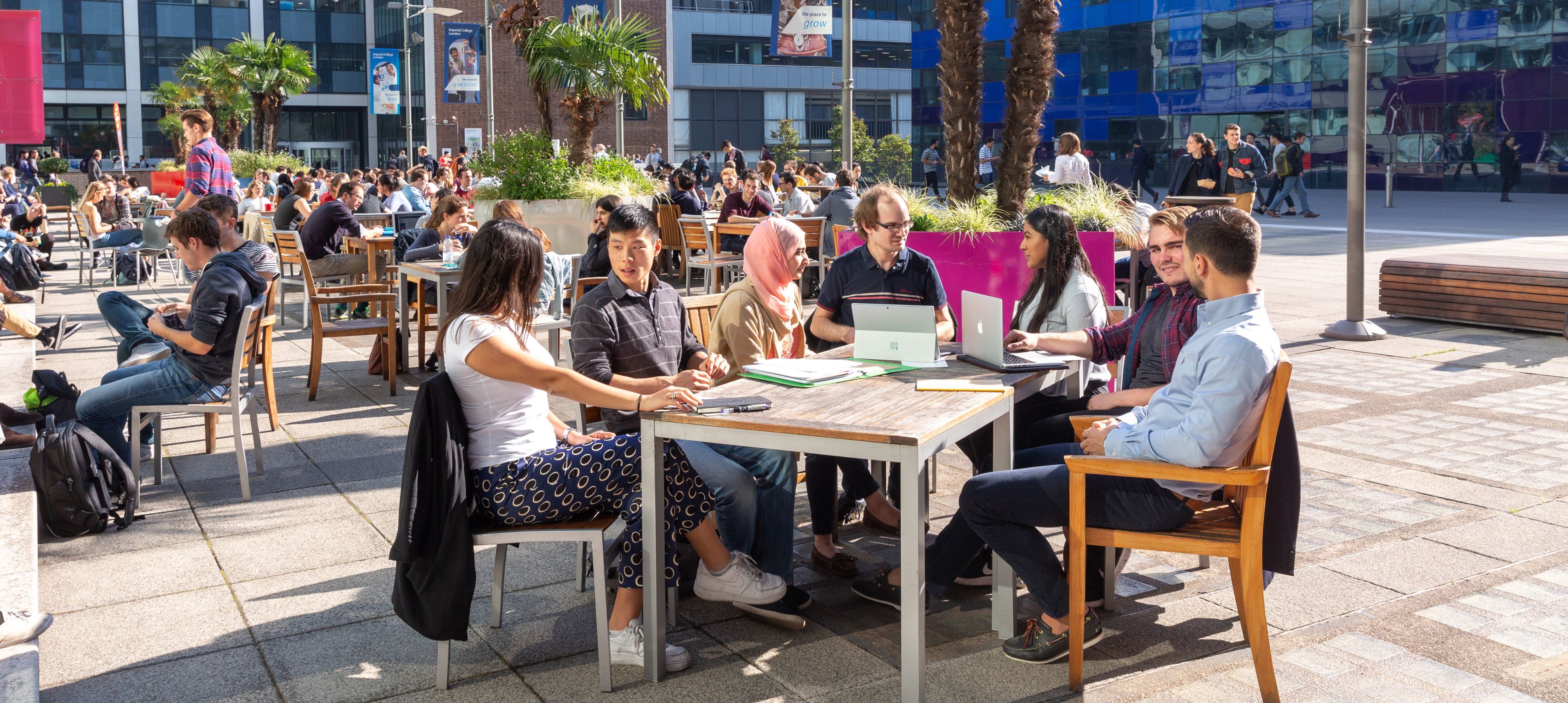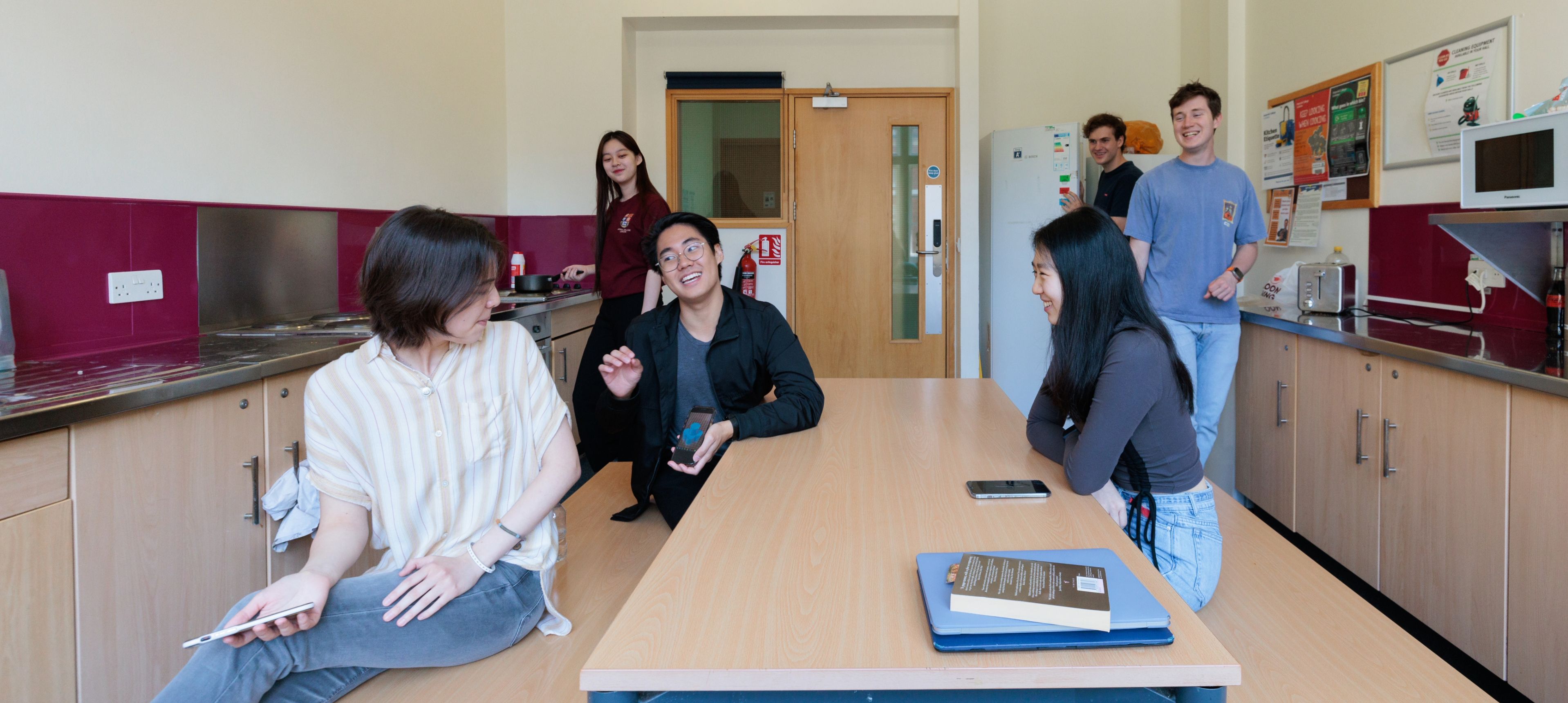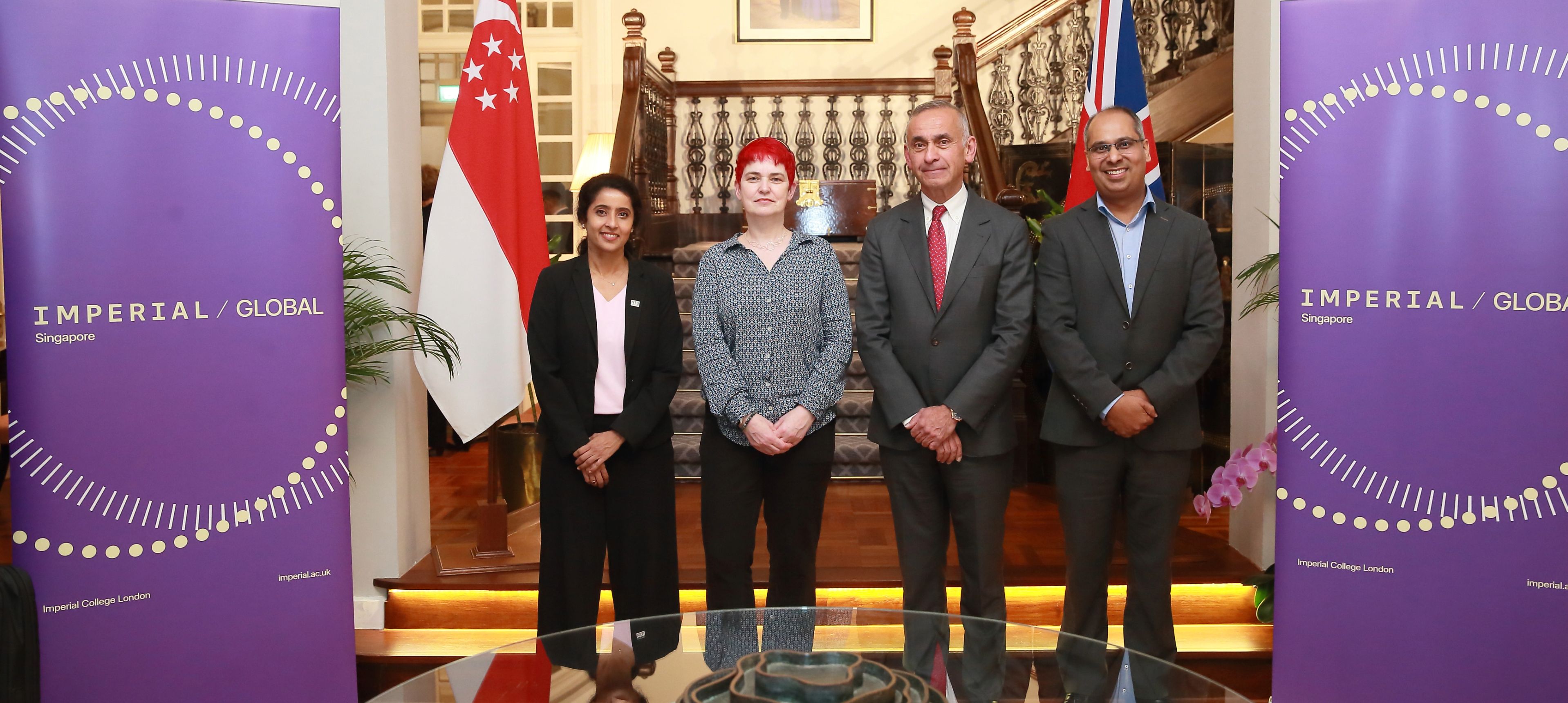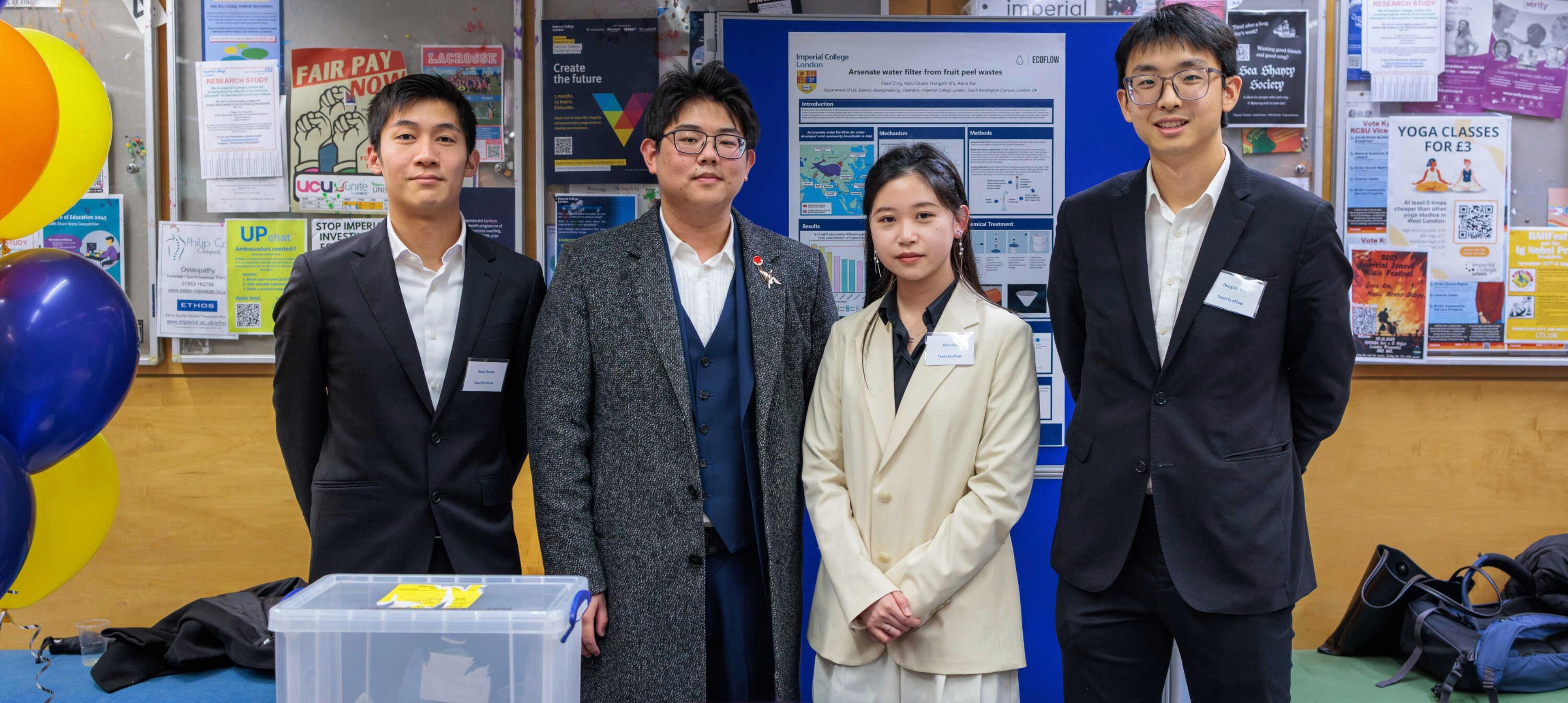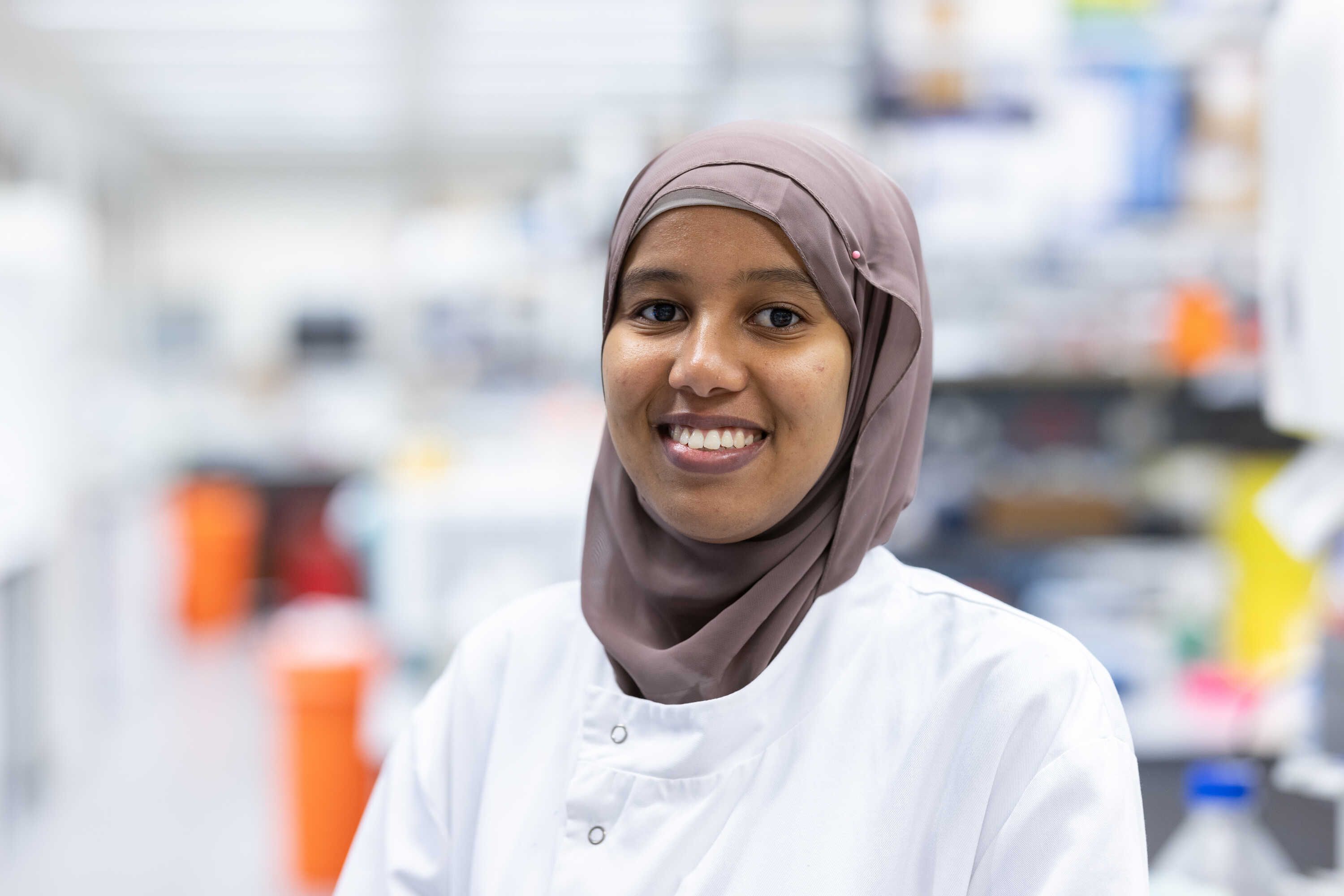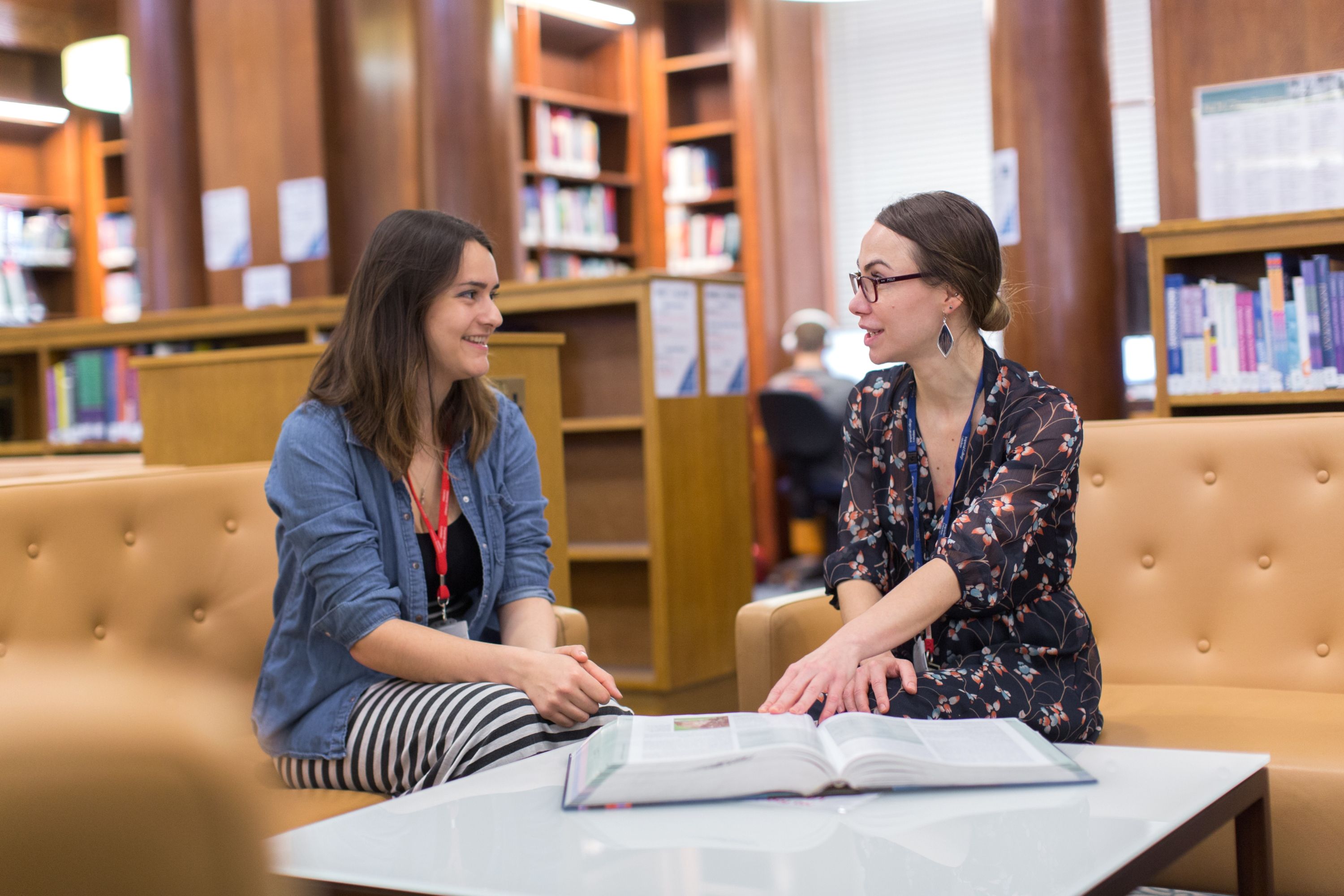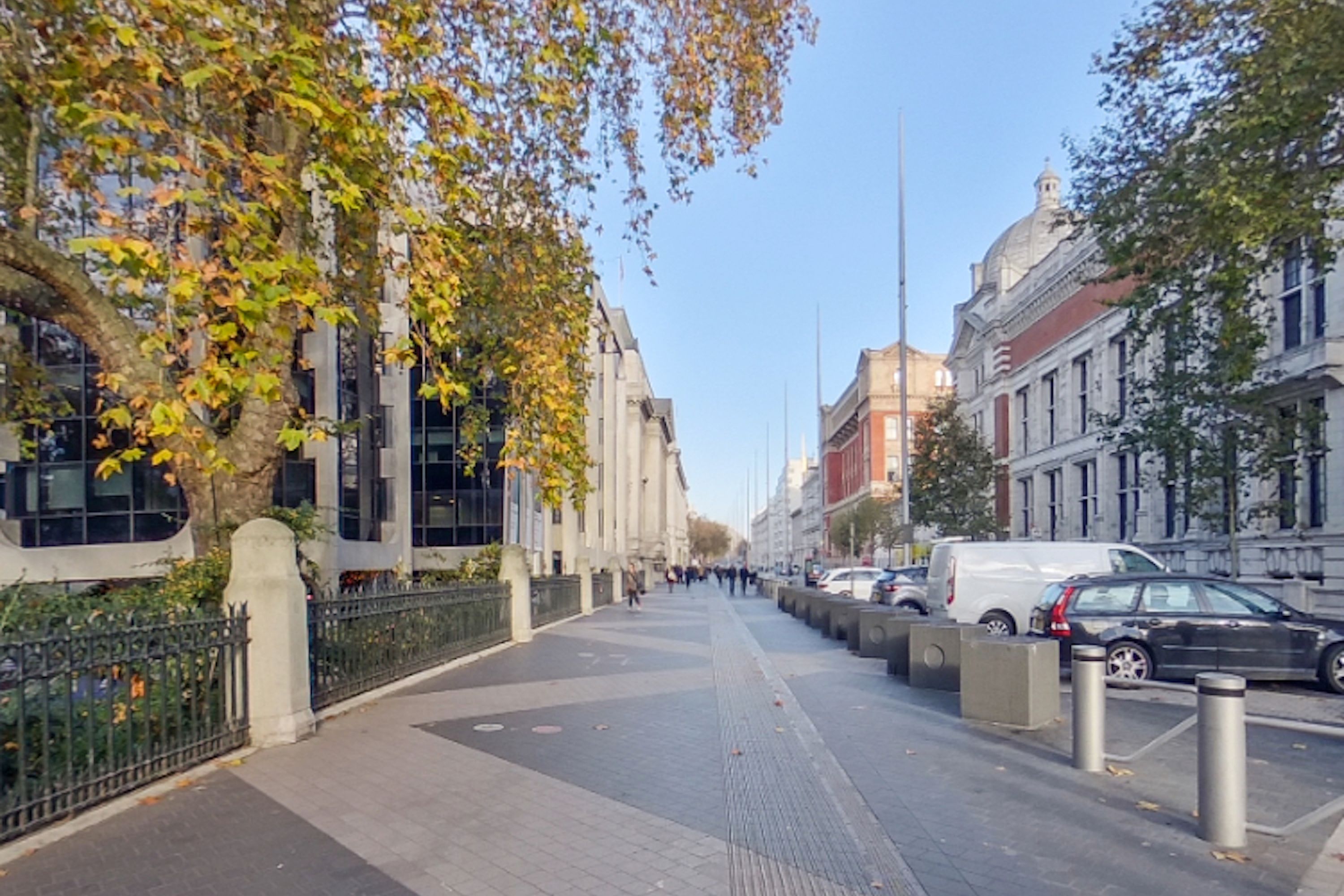Information for South East Asian students
- Imperial and South East Asia
- How to apply (undergraduate)
- How to apply (postgraduate)
- Scholarships and loans
- Student activities
- Life after Imperial
As a student in London, you'll be welcomed into a city where over 300 languages are spoken and where over 100,000 students from 200 countries come to study each year.
Imperial is ranked as one of the UK's most international universities and located in the heart of the Best Student City in the World. Each year we welcome students from over 100 countries.
The South East Asian nations currently represented at Imperial include:
- Brunei Darussalam
- Indonesia
- Malaysia
- Myanmar
- Singapore
- Thailand
- The Philippines
- Vietnam
At the undergraduate level, the College is a partner in NTU's (Singapore) Renaissance Engineering Programme which allows the top 50 engineering students at NTU to train at Imperial (or other partner universities) for one year of their four-and-a-half year integrated programme. The programme combines the study of engineering, science, technology, business, economics and entrepreneurship.
Find out more about our work in South East Asia at Imperial Global, including Imperial Global Singapore, where our scientists work closely with university, industry, government, and third-sector partners in Singapore. The Centre, which builds on the longstanding partnership with Nanyang Technological University, Singapore (NTU Singapore), will enable scientists to rapidly scale new breakthroughs and technology to societal benefit and commercialisation in southeast Asia.
An undergraduate degree at Imperial normally lasts three years for a Bachelor’s level qualification or four years for an integrated Master’s.
Some departments offer a year abroad or a year in industry which can add to the overall length of your degree.
Applying via UCAS
To apply for a full-time undergraduate programme at Imperial, you must make an online application via the Universities and Colleges Admissions Service – UCAS. The UCAS code for Imperial College London is I50.
UCAS allows you to apply to a maximum of five courses in one cycle. Find step-by-step instructions on how to apply; you can also visit the UCAS website for more in-depth advice.
If we want to offer you a place, but you have not yet taken your final school exams, then we would usually make you a 'conditional offer'. This means we will guarantee you a place at Imperial subject to you satisfying the conditions of your offer, such as achieving certain scores in your final qualifications and gaining an ATAS certificate for certain courses.
You can submit your results after you have applied; this is usual practice in the UK and is the reason why you must let us know which qualifications you are taking on your UCAS application.
Academic entry requirements
Exact entry requirements vary by course - see the entry requirements section on our course pages for details of the range of international qualifications we accept.
If your school qualification is not on the list of accepted qualifications, you may be considered by taking an accepted Foundation programme, or an accepted qualification at an external provider - see our course pages for details.
English language requirements
All applicants should also achieve the required level of English language and provide evidence of a valid English language qualification to qualify for a place.
There are two levels of English language requirement at Imperial:
- Standard
- Higher
See the English language requirement on the relevant course page to see whether your chosen course requires the standard or higher level. Our English language requirement page has more information about the requirements for each level.
National Service
If you need to complete National Service and you apply to Imperial two years before you are due to complete this, you should initially apply for deferred entry at the point of applying through UCAS.
If your place is confirmed within the UCAS cycle in which you apply, you can then contact the relevant Admissions team the next September to request another deferment of your place to the following year (i.e. the year you are due to complete your National Service).
We try to accommodate all deferment requests but these are subject to approval.
A Master's degree at Imperial normally lasts one year, though we do offer some degrees which you can take part-time over two years and PG Certificate and PG Diploma qualifications which vary in length.
A PhD with us will usually take 3–4 years of full-time study to complete.
How to apply
To apply for a Master's or Doctoral course, you need to submit an application via our online application system.
Find out more about how to apply for postgraduate taught or postgraduate doctoral study.
Academic entry requirements
Exact entry requirements vary per course, but to be considered for admission to a Master's e.g. MSc, MRes, MBA etc, you should hold a Bachelor's degree.
To check if your international qualification meets the College minimum requirement, please see our accepted qualifications.
Departments may also often set higher level requirements, due to the demanding and competitive nature of our courses.
For the vast majority of our degrees, we do not require additional testing such as the GRE or GMAT. If we do require any additional testing it will be clearly stated on the course page.
If you're applying for a Doctoral degree, you should hold a Master's degree – the grades you require will be specified by the Department you're applying to. In addition, you'll need to hold a Bachelor's degree passed at the prescribed level.
If we want to make you an offer, but you have not yet graduated, then we would usually make you a conditional offer subject to you achieving a certain grade or score. This means your place at Imperial is guaranteed providing you meet the conditions of your offer.
You can submit your overall average after you have made your application, which is normal practice in the UK.
English language requirements
Successful applicants will need to achieve a certain level of English to qualify for a place on their chosen course.
Each course specifies either a Standard or Higher language requirement, which is the level of English required for entry on to that particular course, even if English is your first language.
Full details can be found on the relevant course page and English language requirement page.
Re-applying
If you have previously applied to Imperial and were unsuccessful, you will need to submit a new application.
If you have successfully requested deferred entry, you do not need to complete a new application.
- You can search all of our scholarships in one place.
Examples of scholarships for students from South East Asia include:
Undergraduate students
- World Scientific Scholarships (Department of Computing)
Master's students
- ASEAN – UK SAGE: Women in STEM Scholarships
- Chevening Scholarships
- Imperial Commonwealth Scholarships
Research students
The British High Commission Singapore has also compiled a list of scholarships and fellowships for Singaporeans keen to undertake research collaboration in the UK.
Medical Biosciences student Kah Yan (Malaysia)
If life at Imperial was all labs and lectures, we wouldn’t have around 350 clubs and societies to get involved with, and state-of-the-art sports facilities right on campus.
Imperial College Union organises and funds our huge range of student activities.
And if you find there isn’t a society for the things you love yet, they can help you can set one up!
All of our societies are open to all students but here are some you may find of particular interest:
Multi-faith provision
There is a student-run Islamic prayer room on campus with separate male and female areas available. Three multi-faith prayer rooms are also available in the Chaplaincy Multi-Faith Centre for use by all faith groups.
All university accommodation is self-catered. Halal and vegetarian options are also available in catering outlets on campus
Virtual tour
To get a feel for life on our South Kensington Campus, take a virtual tour.
Cultural diversity at Imperial
In our new Shifting The Lens series, Imperial staff and students have opened up about their culture and heritage.
Read about their lives outside of the College – from the festivals they celebrate to the challenges they have faced.
Your relationship with Imperial does not end when you graduate.
There are various options to remain in the UK and seek work after you have completed your studies. We can provide specific advice, guidance and assistance with the Graduate visa, which enables graduates to work in the UK for two years after completing an undergraduate or Master's degree, or three years after completing a PhD. We can also provide limited advice and guidance on the Skilled Worker, Global Talent, Tier 5 (Government Authorised Exchange) and Tier 5 (Youth Mobility Scheme) work visas.
Other graduates move abroad again, and as an Imperial alumnus you will join a community of over 250,000 alumni in over 200 countries.
We have alumni groups worldwide and you can join our online platform Imperial Plexus to help you build links with other former students. In South East Asia these include:
- Imperial College Alumni Association of Indonesia
- Imperial College Alumni Association of Malaysia
- Imperial College Alumni Association of Singapore
- Imperial College Alumni Association of Thailand
Hear from an Imperial student
Aim, a BSc Biotechnology student at Imperial College London shares how she made use of Imperial’s Careers Service to secure an internship in her home country of Thailand.
She describes what support you can receive from our Careers Service and the resources that are available to help you to achieve your career goals.
Hear from an Imperial student
Nafisa, a third-year Biological Sciences student takes you around some of her favourite places to study at our South Kensington Campus.
Opportunities to meet us
Showing results for:
Got a question?
The Imperial representative for South East Asia is Chloe McClean, Senior International Recruitment Officer. Please use the link to the enquiry form below to get in touch.
International recruitment team
Ask me a question
/prod01/channel_3/media/images/people-list/Chloe1080X1080.jpg)
Ask me a question
News from South East Asia
Read more news06 September 2024
Protecting 0.7% of land could help save 1/3 of unique & endangered…